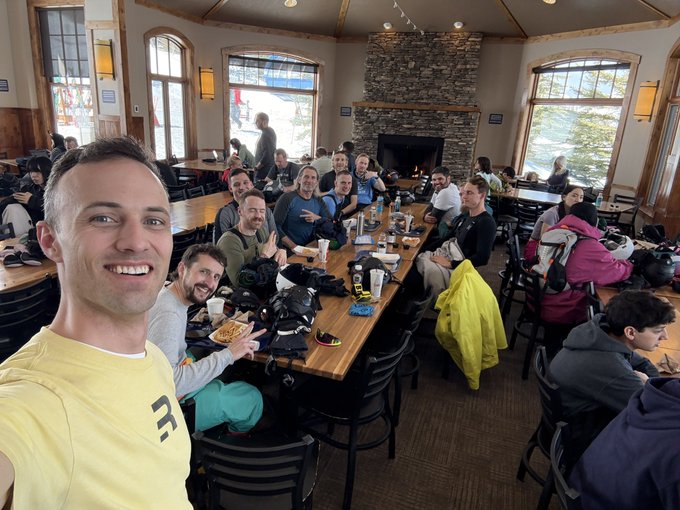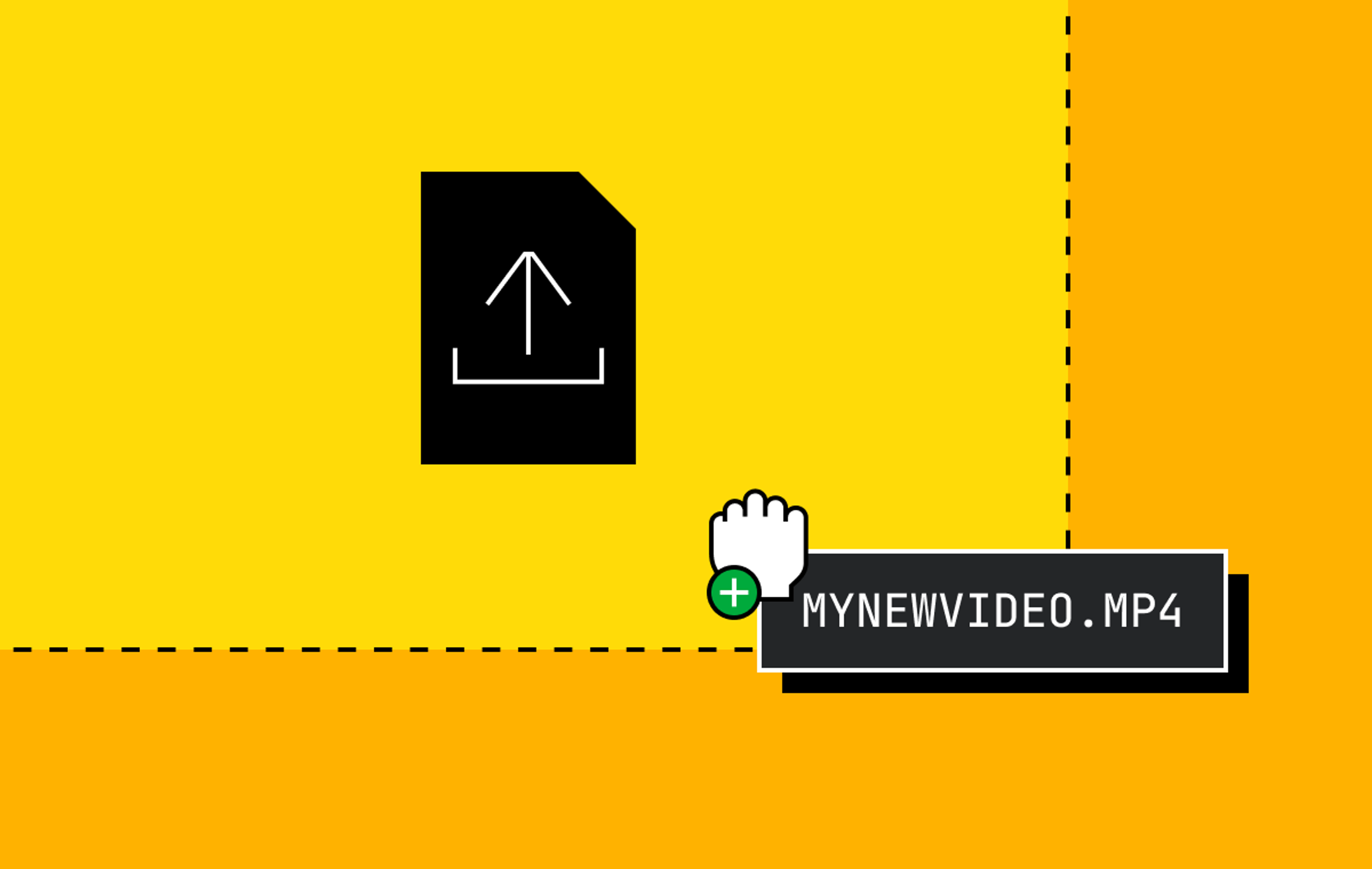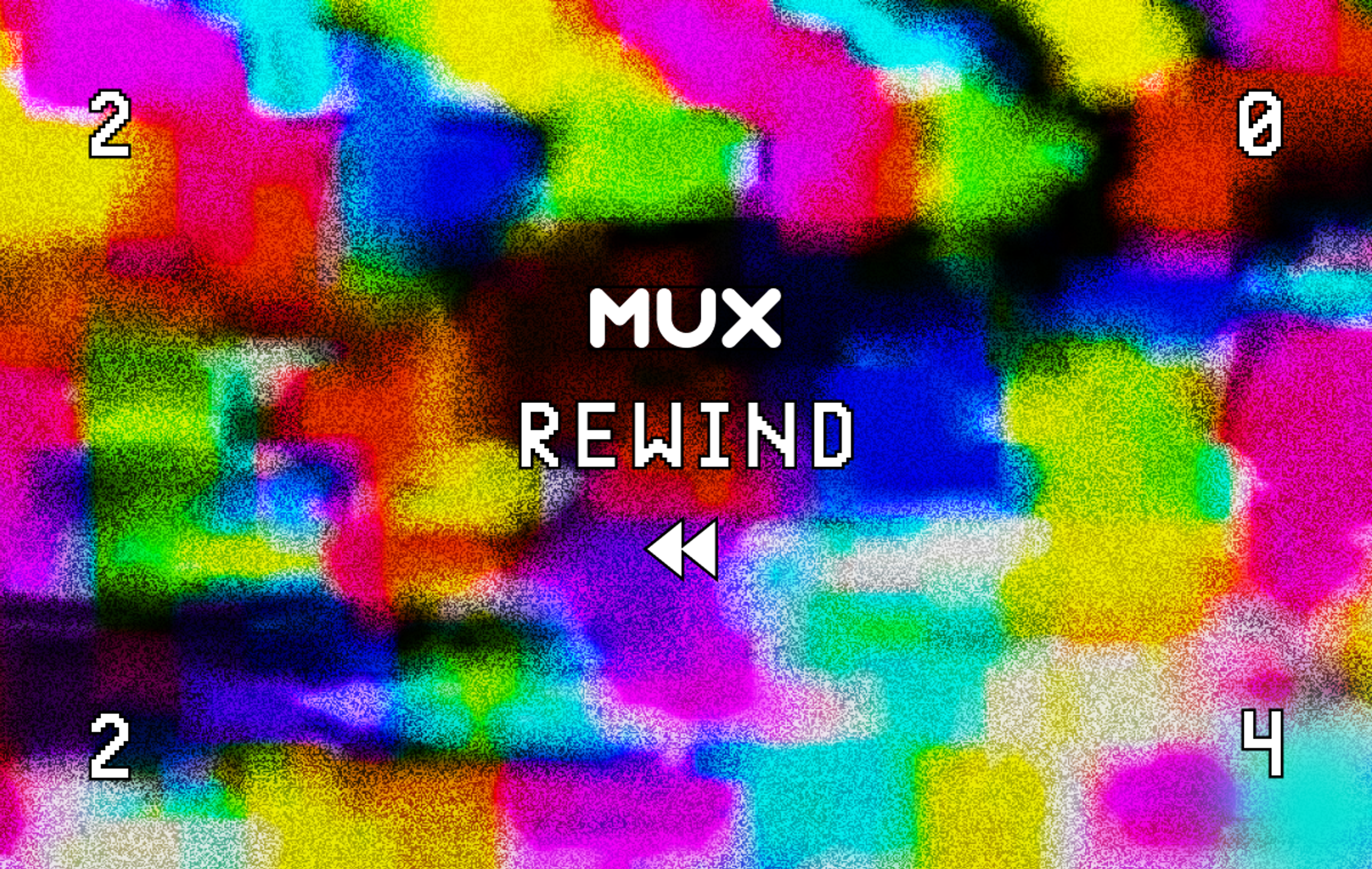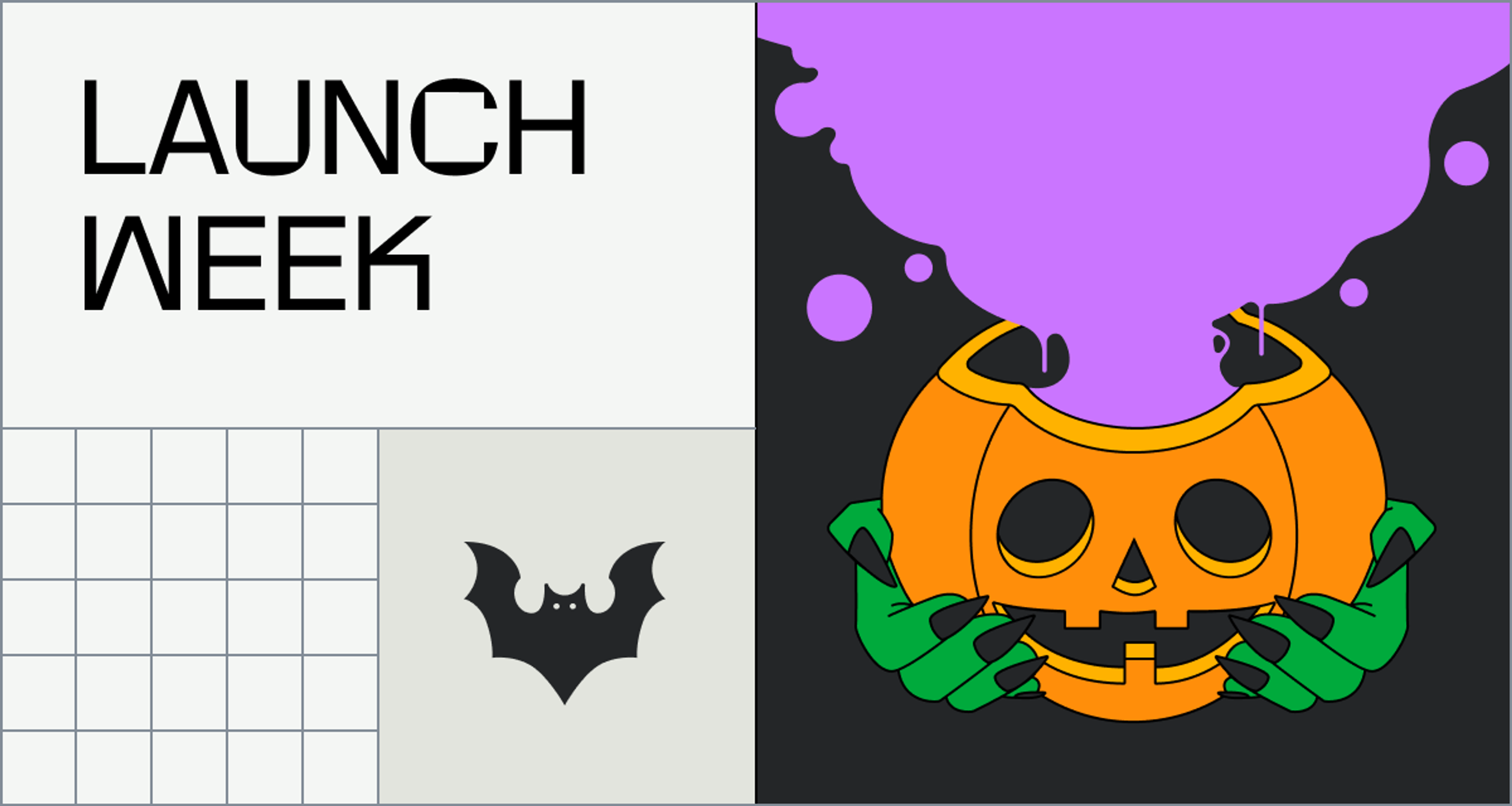It's ski day at #EpicWebConf! ⛷️🏂
Is sponsoring developer events a waste of money? Is there a positive ROI? If you’re not going in with the expectation of making sales or qualifying leads, how can you justify the spend? Aren’t your marketing dollars better allocated elsewhere?
These are questions I often hear when speaking with folks about Mux’s regular presence at developer conferences. From Vercel Ship to Epic Web Conf, we keep showing up at developer events across the country. Why? What’s in it for Mux? Would we ever reconsider?
Fair questions, mate. In this post, I’ll share my perspective on why developer events matter, what takeaways we look for, and why showing up at these events is a key component of what marketing means for Mux.
Behind every app, there’s a face
When you spend every single day staring at software, it’s pretty easy to overlook something important: behind every tool we use, there are actual humans—people just like us. People who have ideas and want feedback, people who are eager to get together, grab dinner, and share stories. But too often, we blur the lines between the creators and their creations, forgetting the human side of the code we depend on.
Conferences provide moments when we can step away from glowing screens and actually hang out, catch up, and talk about what's new at Mux. But that’s only one part of the conversation. We're also just catching up about our kids, pets, and what's happening in our lives. There’s camaraderie in talking shop, but it’s also in the casual conversations and the laughs we share over dinner.
Building real, personal connections might be the best part of attending these events. Genuine friendships don't happen easily through Slack messages or support tickets alone. By showing up, we're putting real faces to the names behind Mux. My jokes might not always land perfectly, but my biggest hope is that these moments let us connect as people first and professionals second.
An abundance of content ideas
Inspiration for content can be evasive. One of the best parts about the conversations that unfold at conferences is how much inspiration we get for new content ideas. We get exposed to all kinds of tech—what’s new, what's working well, and what's causing headaches. We learn firsthand about the struggles people face, what gets them excited, and what they wish they knew more about.
These discussions conjure up fresh ideas that might never come up otherwise. It’s amazing how quickly you can pick up on a topic that resonates by watching someone’s face light up during a conversation. It lets us know exactly what people find interesting or what’s confusing, and then we can take that insight back to our team to iterate upon.
This eliminates all the guessing about what to prioritize; now, we’re prioritizing based on real conversations with real people. This leads to all sorts of new content possibilities: blog posts, videos, podcasts, interviews, even this very blog post you're reading right now. Being on-site puts you right in the middle of conversations you wouldn’t normally have, and that’s exactly where some of the best ideas come from.
Good, bad, and ugly product feedback
At Epic Web Conf, we ran a hackathon that encouraged attendees to use Media Chrome, our open-source media player toolkit, to build the worst video player they could dream up. The goal with that prompt was to get devs excited to build with Mux instead of feeling like a chore or strong promotion.
This turned out wonderfully. The energy in the room of folks looking to outdo each other was exactly what we were hoping for. It also got the developers scouring the docs and codebase, hunting for the APIs that might help bring even the most esoteric idea to life. This kind of stuff just doesn’t happen on a day-to-day basis. A room of developers with undivided attention on your products for a few hours straight is invaluable to your product feedback.
Keep a friction log, take notes, and watch as folks use your product in ways that you’d have never expected. It’s truly eye-opening. Well, and eye-closing, since you’ll be exhausted by the end of the day.
Aren’t you the Mux fella?
Showing up in person has its other perks, too. People start to recognize you, smile when they see you, give high fives and ask how things are going. Every time we show up, we’re putting a face to the Mux logo. Through these IRL experiences, we’re extending the Mux brand to be more than just software.
We grabbed dinner with some folks from the Remix team. We skied down Solitude with new friends from Neon, Laravel, and of course, the legend himself, Kent (see if you can pick us out in the photo). I played Codenames with a lovely group of people (go Blue).
This is how developer conferences help you build relationships. By showing our human side, we earn the trust of our community colleagues, which is the first step towards earning their business. Above all, solidifying these relationships will pay dividends in opportunities to collaborate, partner up, and help each other out.
But… couldn’t you get the same results by simply attending the event?
Kinda. Sorta. Well, no. Yes. Maybe. It depends.
Sponsoring is the best way to increase brand awareness. Placing your logo in front of every attendee means you’ve entered the mind of every attendee. It’s up to you what to do with that fact. That’s something you just don’t get as an attendee.
Sponsor packages often include workshops or hackathons. When we go this route, we do our damndest to make sure these workshops are educational, comfortable, and by golly, fun. You shouldn’t be doing boring workshops.
We don't pay to speak. Yes, that also means that we speak less than we’d like to, but at least it’s authentic when we do speak.
We’re lucky to be in a position to give back and support communities that have made Mux a better company—a company that developers trust. This is a position of privilege, one that is our responsibility to act upon. Organizing any event is not easy. We’re glad to help take just a bit of that load off by providing some financial support.
Can we sponsor every event? No.
For one, I have two kids. I like y’all, but I like them, too. Like, really like them. Love them. Love ya.
For two, we do have a budget to operate within. Capital restrictions simply mean we need to pick and choose the events that are right for us based on our evolving objectives.
For three, there’s a lot of entropy involved. Events happen with different lead times and different cadences throughout the year. There needs to be a special and unpredictable alignment between the event’s structure and where we’re currently focused as a company. This is something we can only somewhat control, but the earlier a developer conference is announced, the better we can plan around it.
For four: there is no four. I just wanted to have a section that started with For four.
Do you have a developer event coming up? Reach out and make sure it’s on our radar—we’d love to meet you. Otherwise, maybe we’ll see you in Miami?






